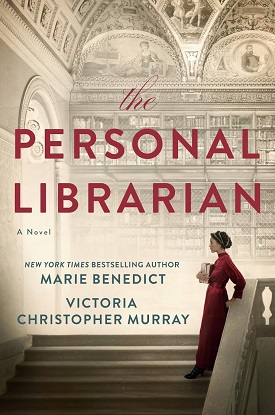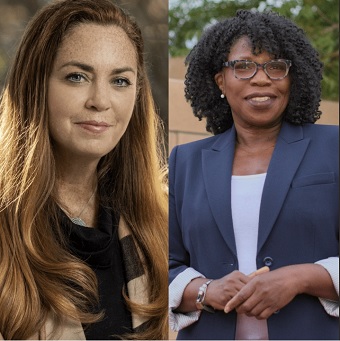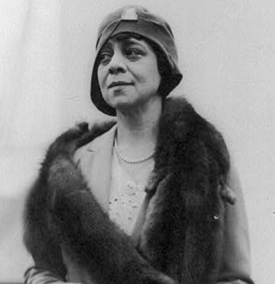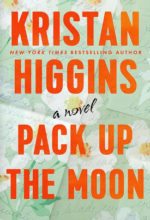 Synopsis:
Synopsis:
In her twenties, Belle da Costa Greene was hired by J. P. Morgan to curate a collection of rare manuscripts, books, and artwork for his newly built Pierpont Morgan Library in New York City.
Belle became a fixture on the New York society scene and one of the most powerful people in the art and book world, known for her impeccable taste and shrewd negotiating for critical works as she helped build a world-class, renowned collection.
But Belle had a secret that she protected at all costs. She was born Belle Marion Greener. She was the daughter of Richard Greener, the first Black graduate of Harvard and a well-known advocate for equality. Belle’s complexion wasn’t dark because of her alleged Portuguese heritage. Her complexion was dark because she was African American. And she passed as white.
Remarkably, Belle became one of the most powerful women in New York despite the dangerous secret she kept in order to make her dreams come true.
And until now, few knew the true story of the extraordinary woman who became famous for her intellect, style, and wit. Or the lengths to which she went to protect her family and her legacy — to preserve her carefully crafted white identity in the racist world in which she lived.
Review:

Benedict relates that Belle literally “haunted” her for decades. Learning about her history caused Benedict to wonder, “What must it have been like to be Belle de Costa Greene?” She wanted to write about Belle, but “knew that it wasn’t right, proper or appropriate for me to try to envision what that must have been like.” As a white woman, Benedict acknowledged that she was incapable of perceiving what it was like to be an African American woman in the United States when slavery had been abolished but white supremacy, Jim Crow laws, and lynchings were escalating. Much less put herself in the place of a woman trying to pass as white as her own father worked to create a world where all people “could live freely while openly celebrating their heritage.” Indeed, Benedict felt strongly that “Belle deserved to have her story told by an African American author.”
Benedict hoped she had found a writing partner when she read Stand Your Ground by Victoria Christopher Murray. Eventually, Murray, who also left a decade-long career in the corporate world and was the author of more than thirty books, agreed to collaborate. The two women had just begun editing their manuscript when COVID-19 shut the world down. And then came a summer of protests following the murder of George Floyd. Benedict and Murray had candid, intimate conversations about race and the ongoing struggle for equality in America that changed not only the final version of The Personal Librarian, but both authors. Benedict says their friendship showed her how little she knew about the struggles of African Americans. “I realized how removed I had been, how protected by my own white privilege I really was. And how much I had to learn and how much i had to do.”
As for Murray, it took her some time to see that combining her talent as a contemporary writer with a historical fiction author was, in fact, “a fit.” She too became fascinated by Belle’s story, but for different reasons. Her own grandmother shared tales about “occasionally passing out of necessity or to make life easier.” So she felt that she “knew Belle from my own familial experiences.” Unlike Benedict, Murray “could imagine how every day, once she walked outside of her doors, she had to put on an award-winning performance, but then, at night when she returned home, took off her ‘costume,’ and laid her head down, she was still Black.” Still, she Murray didn’t believe Belle’s story could be told completely without a white woman “because she lived as white.”
Happily, once Murray and Benedict connected, they were soon “finishing each other’s sentences.” Still, like Benedict, Murray could not have foreseen that “as a disease threatened our bodies and civil unrest challenged our souls Marie and I would bond far beyond the experience of writing together.” As they researched, wrote, and edited, they “created a safe space” in which to talk about “the history of Black America, the history of white America, and the hope that one day these two Americas would converge into one.”
The result of their partnership is a seamlessly related and meticulously crafted fictionalized account of the life of a woman who presented one identity to the world while hiding her true self because she “didn’t want the color of her skin to be used as a weapon against her, an excuse to keep her relegated to the lowest jobs, the worst neighborhoods, with little possibility for a better life.” The Personal Librarian is a poignant, engrossing, timely and timeless story about the lengths to which one woman would go in order to rise above the constraints society placed on her and her family.
Belle’s story is told via a first-person narrative, making it powerful and impactful. Benedict and Murray meticulously researched their subject but Belle was, of necessity and purposefully, intensely private. Based on the information available to them, Benedict and Murray have believably imagined and crafted conversations, as well as Belle’s inner dialogue as she navigates the world. Belle was determined to succeed in a world designed to hold her back. Clever, calculating, witty, and beautiful, Belle was adept at using all of her assets to her advantage. She had to be. Because everything was at stake. And not just for her, but for her entire family because she supported them financially, enabling them to move to increasingly more comfortable apartments as Morgan generously increased her salary when she successfully procured the pieces he desired and elevated the library’s stature.
I accepted my mother’s decision as if it were my own and I became the white woman known as Belle da Costa Greene.
Belle’s father was not only the first Black graduate of Harvard University. He was also an activist, a contemporary of Frederick Douglass, Charles Sumner, and Booker T. Washington, known for his oration. But Belle’s mother “saw the writing on the wall.” When politicians began dismantling Reconstruction, her father lost his job as the first Black professor at the integrated University of South Carolina and the school was converted to a whites-only private men’s college. She explains to Belle, “Your father and I lived through a brief, fleeting time in history when equality might have been possible.” But the “lofty postwar ideal of integration” evaporated, the world comprised only of “black and white, two races separated, but certainly not equally.” She recognized what Belle’s father refused to: “Our only hope would be to live as white.” And so they did.
But when Belle’s mother reported to a 1905 census worker that the family was white, her father was infuriated to the breaking point and left. “Once she made the decision that they were going to live as white, she changed their names, she told them how they had to behave and, from the age of sixteen on, Belle was walking the footsteps her mother laid out for her,” explains Murray. Indeed, throughout the book, Belle is “walking a tightrope” and struggling to reconcile her guilt with her ambition. She “felt that she was betraying her father but also helping black people.” Belle secretly knew that her achievements were, in fact, the achievements of a a woman but, more particularly, a Black woman. Even if the world did not. Yet.
Belle was a woman compiling a vast and priceless collection of rare books, manuscripts, and art, an unparalleled accomplishment. She traveled abroad and skillfully negotiated to purchase artifacts she deemed necessary to elevate the library to unmatched esteem. But she did so in the employ of J. P. Morgan (1837-1913), a man of vast wealth and power who financed railroads and helped organize U.S. Steel, General Electric, and other major corporations. He was demanding and unforgiving, an anti-Semite who reminded Belle that she was his personal librarian, sometimes treating her like she was yet another of his possessions. Or worse, in Belle’s mind, a slave. They disagreed and quarreled, but she strove to avoid angering or embarrassing him, aware that he would fire her instantly were her secret revealed, bringing ruin upon her entire family. Belle revered him and he was drawn to her — based on their research, Benedict and Murray suggest a sexual tension between them. He came to consider her the most important person in his life, providing generously for her in his will.
Benedict and Murray effectively portray the evolution of their complex relationship, as well as Belle’s interactions with Morgan’s mistresses and children, especially his daughter Anne. Unmarried, Anne was rumored to be in a “Boston marriage,” a euphemism for wealthy women who chose to eschew marriage to live independently and, perhaps, enjoy an intimate relationship. Their fractious encounters cause Belle concern, especially when Anne makes references to her “people,” and questions her background, snidely telling Belle, “I though I heard something about your family having tropical roots.” Belle shrewdly leverages the rumors about Anne to her advantage and relates the story that Belle’s mother devised about Belle’s grandmother hailing from Portugal to explain Belle’s olive skin tone. It appeases Anne for a time, as it does others who inquires.
Belle never married, but she did have a decades-long relationship with Bernard Berenson, an expert on Renaissance-era art, which is explored in depth. It is both a heartbreaking and empowering aspect of Belle’s life, as depicted by the authors. As a young woman, Belle was forced to accept that marriage and motherhood would not be in her future. She says, “I’ve always known that, because of my heritage, a traditional relationship would not be possible for me … because a marriage means children, and that is something I cannot hazard. Without the fairer skin of my siblings, I could never risk bearing a child whose skin color might reveal my deception.” But Belle wanted to experience love and romance, and in Benedict and Murray’s telling of the story, although she had other lovers, she gets the opportunity to feel loved through Berenson, a man in an unconventional marriage with other secrets of his own. Like her relationship with Morgan, Belle’s affair with Berenson changes her profoundly.

Of all of her accomplishments, the one that mattered most to Belle was making two men proud of her — Morgan and her father — for very different reasons. Her father’s departure from the family impacted Belle deeply because of their close relationship and his tutelage about art and other subjects. Eventually, because of her notoriety, Belle dares not be seen with him in New York, so she is not able to personally show him her life’s work. She knows his words are true: “Changing your name is easy. Changing your soul is impossible.” She dreams of reinventing herself yet again and ponders coming forward with the truth in order to serve as an example to other Black people. But she never did.
The Personal Librarian is Belle’s story, told in a compelling, engrossing, and richly moving manner that provides insight into and appreciation for Belle’s triumphs, as well as sacrifices, as she strove to achieve her goals in the only way possible to her at the time. As he father tells her in a conversation imagined by Benedict and Murray, “One day, Belle, we will be able to reach back through the decades and claim you as one of our own. Your accomplishments will be part of history, they’ll show doubtful white people what colored can do. Until that time, live your life proudly.”
Benedict and Murray hope that readers, especially book club members, will reach out to each other and use the book to launch conversations about race in a way that feels safe.
Excerpt from The Personal Librarian
Chapter 1
November 28, 1905
Princeton, New Jersey
The Old North bell tolls the hour, and I realize that I’ll be late. I long to break into a sprint, my voluminous skirts lifted, my legs flying along the Princeton University pathways. But just as I gather the heavy material, I hear Mama’s voice: Belle, be a lady at all times. I sigh; a lady would never run.
I release the fabric and slow down as I weave through Princeton’s leafy Gothic landscape, designed to look like Cambridge and Oxford. I know I must do nothing to draw any kind of extra attention. By the time I pass Blair Arch, my stride is quick but acceptable for a lady.
It’s been five years since I left our New York City apartment for this sleepy New Jersey college town, and the quiet is still unnerving. On the weekends, I wish I could return to the energy of New York, but the sixty cents for a train ticket is outside our family’s budget. So, I send money home instead.
As I duck under a crenellated tower, I moderate my pace so I won’t be breathless when I arrive. You are at Princeton University. You must take extra care working at that all-male institution. Be cautious, never do anything to stand out. Even though she’s nearly sixty miles away, Mama insinuates herself into my thoughts.
Pushing the heavy oak door slowly to minimize its loud creak, I pad as quietly as my calfskin boots allow, across the marble foyer before I sidle into the office I share with two other librarians. The room is empty, and I exhale in relief. If sweet-natured Miss McKenna saw me arrive late, it would have been of no import, but with hood-eyed, nosy Miss Adams, I could never be certain she wouldn’t mention my offense at some future time to our superior.
I remove my coat and hat, careful to smooth my rebellious curly hair back into place. Tucking my somber navy skirt beneath me, I slide onto my chair. Within minutes, the office door flies open, slamming against the wood-paneled wall, and I jump. It is my only dear friend, fellow librarian, and housemate, Gertrude Hyde. As the niece of the esteemed head of purchasing for the library, Charlotte Martins, she can breach the quiet of the library’s hallowed halls without fear of repercussions. An ebullient twenty-three-year-old with ginger hair and bright eyes, no one makes me laugh as she does.
“Sorry to make you jump, dear Belle. I guess I owe you two apologies now, instead of the single one I’d intended. First, we abandoned you this morning, which undoubtedly led to your lateness,” she says with a mischievous smile and a glance at the wall clock, “and now, I’ve given you a fright.”
“Don’t be silly. The fault is mine. I should have put aside that letter to my mother and walked to campus with you and Charlotte. Miss Martins, I mean,” I correct myself.
Most days, Charlotte, Gertrude, and I walk together from their large family home on University Drive, where I have a room and share meals with Charlotte, Gertrude, and the rest of their family who live in the house as well. From the first, Charlotte and Gertrude have welcomed me into their home and social circles with warmth and generosity and have provided me with abundant guidance at work. I cannot imagine what my time in Princeton would have been like without them.
“Belle, why are you fussing about what to call Aunt Charlotte? There’s nobody in here but you and me,” Gertrude mock scolds me.
I don’t say what I’m thinking. That Gertrude doesn’t need to assess every single moment of every single day against societal standards to ensure her behavior passes muster. She has no need to analyze her words, her walk, her manner, but I do. Even with Gertrude, I must act with care, particularly given the heightened scrutiny in this university town, which operates as if it lies in the segregated South rather than in the supposedly more progressive North.
The distinctive clip of Miss Adams’s shoes sounds in the hallway outside my office door, and Gertrude’s skirt rustles as she moves to leave. She has as much fondness for my office mate as I do, and she’ll skedaddle before she can get locked into a conversation.
Before she exits the office altogether, she turns back to me, whispering, “Are you still free for the philosophy lecture tonight?”
Since Woodrow Wilson assumed the presidency of Princeton University three years ago and instituted all sorts of scholastic reform, the number of lectures open to staff and members of the community has increased. While Gertrude and I revel in being included in the academic life of the campus, I loathe certain of Wilson’s other decisions, such as maintaining Princeton as a whites-only university when all the other Ivy League schools have admitted colored folks. But I would never voice aloud these views.
Instead, I say, “Wouldn’t miss it for the world.”
***
The quiet of the stacks wraps around me like a soft blanket. I relax into the subdued hush of patrons turning pages and the scent of leather bindings. My long days spent in the company of medieval manuscripts and early printed books calm and delight me. Imagining the labors of the first printing press users as they memorialized the English language and broadly disseminated its literature through the meticulous work of placing the type letter by letter, transforming empty pages into beautiful text to inspire worshippers and readers, transports me beyond the limitations of this time and place, just as Papa always believed. To him, the written word could act as an invitation to free thought and the broader world, and nowhere was that more true than in the dawn of the printed word, where—for the first time—that invitation could be made to the masses instead of a select few.
“Miss Greene.” I hear a soft voice from beyond the stacks.
Two simple words, but my visitor’s modulated tone and distinctive accent give him away, and anyway, I’ve been waiting for him.
“Good day, Mr. Morgan,” I reply, turning in his direction.
Even though I’m talking softly, Miss Scott glances up from the circulation desk with a disapproving scowl. It isn’t so much the volume of my speech as the pleasantness of my relationship with the fellow librarian and collection benefactor that vexes her.
While Mr. Junius Morgan is ostensibly a banker, he has generously donated dozens of ancient and medieval manuscripts to the university, which is why he also holds the titular position of associate head librarian. I’m convinced that Miss Scott thinks any sort of relationship between us—even the cordial, professional one we share—is beneath him.
A slight man, with wispy brown hair and a kindly expression behind his circular glasses, materializes. “How are you today, Miss Greene?”
“Well, sir. And yourself?” My tone is professional and reserved. He’s twenty minutes later than the time we’d mentioned, and I’d begun to think he’d forgotten about our appointment. But I would never dare mention his tardiness.
“I was going to take a gander at the Virgils, as we discussed yesterday. I wonder if you’d still care to accompany me. Assuming your duties and your interest permit, of course.”
Mr. Morgan, whom I think of as Junius in the privacy of my thoughts, knows that my zeal for the library’s most valuable collection is nearly as intense as his own and that none of my other tasks will stand in the way of the private viewing he has promised.
We share a passion for the ancient Roman poet Virgil. The library houses fifty-two volumes of his poetry. My discussions with Junius about the dark voyages in The Aeneid and The Odyssey are some of the brightest moments in my days. While Junius admires Odysseus, I identify always with Aeneas, the Trojan refugee who desperately tries to fulfill his destiny in a world that holds no place for him. Aeneas was driven by duty, sacrificing for the good of others.
“I have cleared my schedule, sir.” I smile.
“Wonderful. If you’ll follow me.”
My skirts swish the oak floor as I follow Junius to the small, elegant room where the Virgils are housed. I have to inhale and restrain my foot from tapping as I wait for him to fish out a heavy key ring from his pocket.
Finally, he pushes the door open to reveal the glass cases holding the precious collection of rare books. There are only about one hundred and fifty printed books of Virgil’s poetry in existence. These volumes were all printed in the fifteenth century. Most of them have been donated by Junius.
I’ve seen these books only a few times before, while in the company of the restoration team. This is a holy moment.
Mr. Morgan’s voice worms its way into the sanctity of my thoughts. “Would you care to hold my favorite?”
Junius is carrying the Sweynheym and Pannartz copy of Virgil, the rarest of all the books. German clerics Conrad Sweynheym and Arnold Pannartz were two of the first users of the printing press in the fifteenth century, and the book he’s proffering is one of their press’s very first editions.
“May I?” I ask, incredulous at this opportunity.
“Of course.” His eyes are bright behind his spectacles. I suspect it’s a thrill for him to share his prize with one who cares equally about it.
I slide the proffered white gloves onto my hands. The book is heavier than I expected. I sit before its open pages. How Papa would have relished this moment. I think of my father, who introduced me to the rarefied world of art and manuscripts when I was only a girl.
One day, the beauty of your mind and the beauty of art will be as one, Papa had said once.
The memory of Papa’s words makes me smile as I turn the yellowed pages. I examine the hand-detailed letter T that marks the beginning of a page, marveling at the luster of its gold leaf. I am oblivious to Junius’s presence near me until he begins talking.
“I saw my uncle last evening.”
Junius doesn’t need to identify who his uncle is. Everyone at the library knows he is the nephew of the infamous financier J. P. Morgan, which is exactly why I never mention him. I want Junius to understand that I appreciate him for his erudition alone.
“Ah?” I answer politely, never moving my eyes from the page.
“Yes, at the Grolier Club.”
I know the club he speaks of, by reputation anyway. Founded about twenty years ago, in 1884, the private club consists of moneyed bibliophiles whose main aim is to promote the scholarship and collection of books. I would adore a peek behind the closed doors of its Romanesque townhouse on East Thirty-Second Street. But as a woman, I’d never be admitted, and to those men, my gender would not be my only sin.
“Were you attending an interesting lecture?” I attempt to continue making small talk.
“Actually, Miss Greene, it wasn’t the lecture that was interesting.” Junius’s tone contains a quality unusual for him, bordering on playful.
Curious, I turn away from the Virgil. Junius’s placid face, always pleasant but always serious, has cracked open wide with a smile. It is a bit disconcerting, and as I lean away a little, I wonder what on earth is going on.
“No?” I ask. “The lecture wasn’t good?”
“The lecture was fine, but the most fascinating discussion of the evening was with my uncle about his personal art and manuscript collection. I advise him about it from time to time, as well as the new library he’s constructing for it right next door to his home in New York City.”
“Oh, yes,” I say with a small nod. “Is he considering an intriguing new acquisition?”
Junius pauses for a moment before he answers. “In a manner of speaking, I suppose he is in search of a new acquisition,” he says with a knowing chuckle. “I have recommended that he interview you for his newly created post of personal librarian.”



1 Comment
The story is fascinating. A bit difficult for me to understand from overseas but still very intriguing.
Thank you for the review.